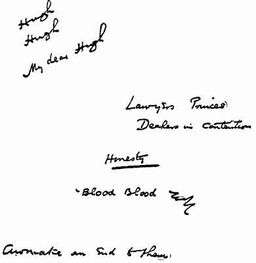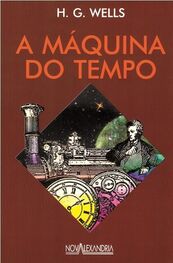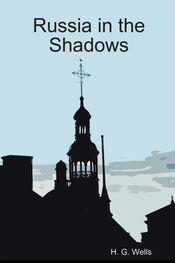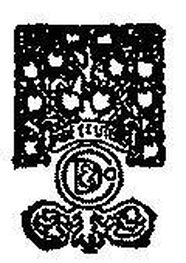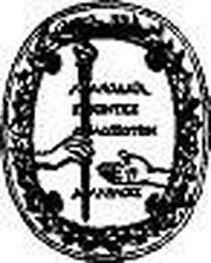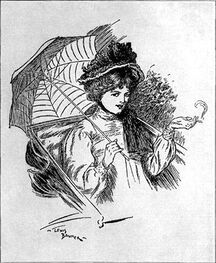5. THE STATE IS GOD'S INSTRUMENT
Because religion cannot be organised, because God is everywhere and immediately accessible to every human being, it does not follow that religion cannot organise every other human affair. It is indeed essential to the idea that God is the Invisible King of this round world and all mankind, that we should see in every government, great and small, from the council of the world-state that is presently coming, down to the village assembly, the instrument of God's practical control. Religion which is free, speaking freely through whom it will, subject to a perpetual unlimited criticism, will be the life and driving power of the whole organised world. So that if you prefer not to say that there will be no church, if you choose rather to declare that the world-state is God's church, you may have it so if you will. Provided that you leave conscience and speech and writing and teaching about divine things absolutely free, and that you try to set no nets about God.
The world is God's and he takes it. But he himself remains freedom, and we find our freedom in him.
So I end this compact statement of the renascent religion which I believe to be crystallising out of the intellectual, social, and spiritual confusions of this time. It is an account rendered. It is a statement and record; not a theory. There is nothing in all this that has been invented or constructed by the writer; I have been but scribe to the spirit of my generation; I have at most assembled and put together things and thoughts that I have come upon, have transferred the statements of "science" into religious terminology, rejected obsolescent definitions, and re-coordinated propositions that had drifted into opposition. Thus, I see, ideas are developing, and thus have I written them down. It is a secondary matter that I am convinced that this trend of intelligent opinion is a discovery of truth. The reader is told of my own belief merely to avoid an affectation of impartiality and aloofness.
The theogony here set forth is ancient; one can trace it appearing and disappearing and recurring in the mutilated records of many different schools of speculation; the conception of God as finite is one that has been discussed very illuminatingly in recent years in the work of one I am happy to write of as my friend and master, that very great American, the late William James. It was an idea that became increasingly important to him towards the end of his life. And it is the most releasing idea in the system.
Only in the most general terms can I trace the other origins of these present views. I do not think modern religion owes much to what is called Deism or Theism. The rather abstract and futile Deism of the eighteenth century, of "votre Etre supreme" who bored the friends of Robespierre, was a sterile thing, it has little relation to these modern developments, it conceived of God as an infinite Being of no particular character whereas God is a finite being of a very especial character. On the other hand men and women who have set themselves, with unavoidable theological preconceptions, it is true, to speculate upon the actual teachings and quality of Christ, have produced interpretations that have interwoven insensibly with thoughts more apparently new. There is a curious modernity about very many of Christ's recorded sayings. Revived religion has also, no doubt, been the receiver of many religious bankruptcies, of Positivism for example, which failed through its bleak abstraction and an unspiritual texture. Religion, thus restated, must, I think, presently incorporate great sections of thought that are still attached to formal Christianity. The time is at hand when many of the organised Christian churches will be forced to define their positions, either in terms that will identify them with this renascence, or that will lead to the release of their more liberal adherents. Its probable obligations to Eastern thought are less readily estimated by a European writer.
Modern religion has no revelation and no founder; it is the privilege and possession of no coterie of disciples or exponents; it is appearing simultaneously round and about the world exactly as a crystallising substance appears here and there in a super-saturated solution. It is a process of truth, guided by the divinity in men. It needs no other guidance, and no protection. It needs nothing but freedom, free speech, and honest statement. Out of the most mixed and impure solutions a growing crystal is infallibly able to select its substance. The diamond arises bright, definite, and pure out of a dark matrix of structureless confusion.
This metaphor of crystallisation is perhaps the best symbol of the advent and growth of the new understanding. It has no church, no authorities, no teachers, no orthodoxy. It does not even thrust and struggle among the other things; simply it grows clear. There will be no putting an end to it. It arrives inevitably, and it will continue to separate itself out from confusing ideas. It becomes, as it were the Koh-i-noor; it is a Mountain of Light, growing and increasing. It is an all-pervading lucidity, a brightness and clearness. It has no head to smite, no body you can destroy; it overleaps all barriers; it breaks out in despite of every enclosure. It will compel all things to orient themselves to it.
It comes as the dawn comes, through whatever clouds and mists may be here or whatever smoke and curtains may be there. It comes as the day comes to the ships that put to sea.
It is the Kingdom of God at hand.
THE END
Even the "Apostles' Creed" is not traceable earlier than the fourth century. It is manifestly an old, patched formulary. Rutinius explains that it was not written down for a long time, but transmitted orally, kept secret, and used as a sort of password among the elect.
It is not so generally understood as it should be among English and American readers that a very large proportion of early Christians before the creeds established and regularised the doctrine of the Trinity, denied absolutely that Jehovah was God; they regarded Christ as a rebel against Jehovah and a rescuer of humanity from him, just as Prometheus was a rebel against Jove. These beliefs survived for a thousand years throughout Christendom: they were held by a great multitude of persecuted sects, from the Albigenses and Cathars to the eastern Paulicians. The catholic church found it necessary to prohibit the circulation of the Old Testament among laymen very largely on account of the polemics of the Cathars against the Hebrew God. But in this book, be it noted, the word Christian, when it is not otherwise defined, is used to indicate only the Trinitarians who accept the official creeds.
Go thy way, eat thy bread with joy, and drink thy wine with a merry heart; for God now accepteth thy works. Let thy garments be always white; and let thy head lack no ointment. Live joyfully with the wife whom thou lovest all the days of the life of thy vanity, which he hath given thee under the sun, all the days of thy vanity for that is thy portion in this life, and in thy labour which thou takest under the sun. Whatsoever thy hand findeth to do, do it with thy might; for there is no work, nor device, nor knowledge, nor wisdom, in the grave, whither thou goest.
This probably was the conception of Spinoza. Christ for him is the wisdom of God manifested in all things, and chiefly in the mind of man. Through him we reach the blessedness of an intuitive knowledge of God. Salvation is an escape from the "inadequate" ideas of the mortal human personality to the "adequate" and timeless ideas of God.
Читать дальше

